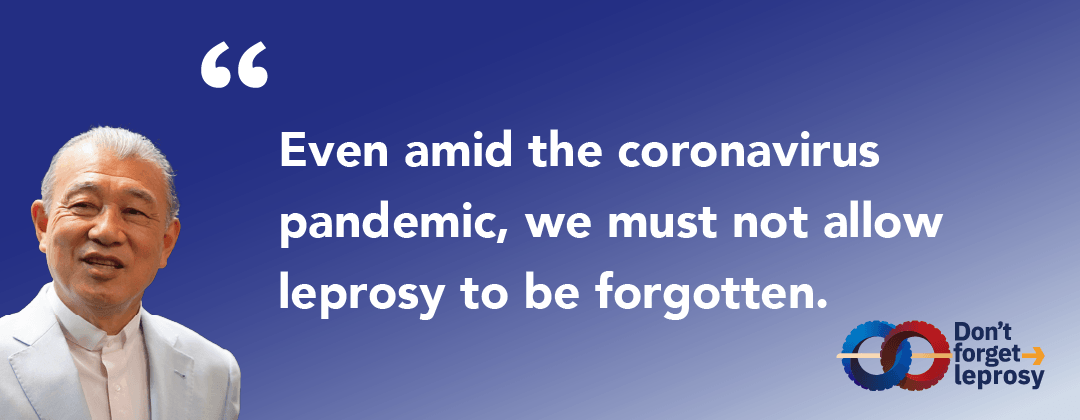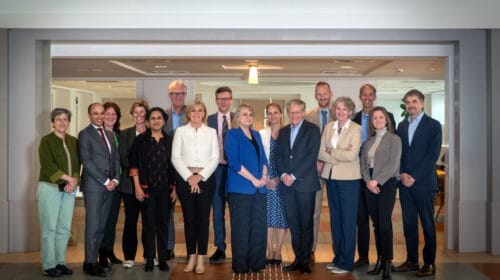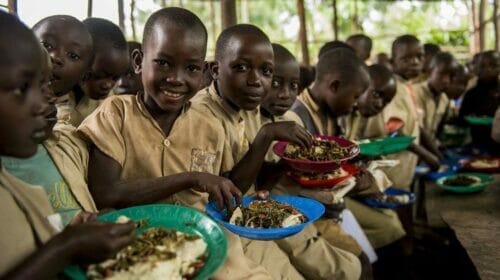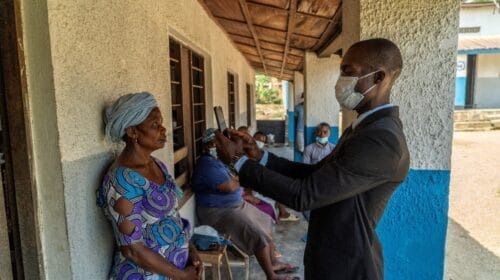Message for World Leprosy Day 2022

From Yohei Sasakawa, WHO Goodwill Ambassador for Leprosy Elimination
The social and economic upheaval caused by the coronavirus pandemic has been particularly hard on persons affected by leprosy and their families, many of whom were in a vulnerable position to begin with. Lockdowns implemented by governments have made it harder for them to access treatment and care, deprived them of income-generating opportunities, and exacerbated the deprivations their marginalized communities already faced.
With this in mind, in August 2021 I launched an awareness campaign called “Don’t forget leprosy.” The campaign aims to keep leprosy from slipping from view amid the COVID pandemic and ensure that the needs of those affected by the disease are not neglected.
I have been seeking the support of health ministers of leprosy-endemic countries, conducting awareness campaigns in collaboration with organizations of persons affected by leprosy, NGOs, research institutes and others, reaching out to the media, hosting webinars and organizing my annual Global Appeal to end the stigma and discrimination that persons affected by leprosy face.
Data published by WHO in September 2021 for the calendar year 2020 showed a drop in new cases of 37% on the previous year. This is evidence that, in many countries, measures against leprosy, including case detection and treatment, have been disrupted by the pandemic. Delays in detecting and treating cases can lead to irreversible physical impairment, so it is essential that these services continue. That is why I have been seeking the support of government officials and health professionals for the “Don’t forget leprosy” campaign.
Leprosy, or Hansen’s disease, is a curable infectious disease caused by the bacillus M. leprae. But the disease is difficult to contract and most people will never develop it even if exposed to leprosy bacilli. Over the years I have met with thousands of leprosy patients and have never developed leprosy. However, what makes leprosy such a challenge is the discrimination that accompanies it—discrimination that has been recognized as a human rights issue by the United Nations.
This discrimination has existed throughout the world from Old Testament times up until the present day, regardless of race or country. For many persons affected by leprosy, the discrimination doesn’t end once they are cured, and that tells me that society has a disease. I am convinced that if we can solve the issue of discrimination in leprosy, this can become a model for solving all the human rights problems in the world.
Central to finding solutions to these challenges will be persons affected by leprosy themselves. In order to effectively carry out case-finding activities disrupted by the coronavirus pandemic, it is necessary for them to get involved and make use of their experience and knowledge. It is also important that they are active on social media and speak out against discrimination.
We are the only creatures on Earth that have been given the ability to reason. Let us use our reason to confront the stigma that persons affected by leprosy face, cure society of the disease of discrimination and stop repeating the mistakes of the past.




